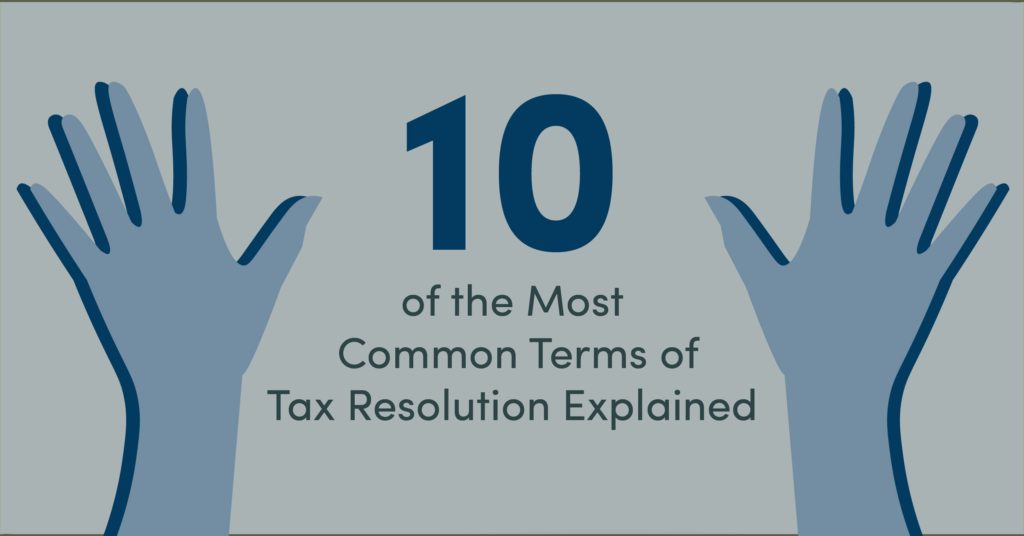
Resolving outstanding tax issues can be confusing for people who are not familiar with the process. To make you more comfortable with this process, here are ten of the most common terms used in tax resolution cases.
Tax Levy
A tax levy happens when the IRS seizes assets to cover an outstanding tax debt. If you owe money to the IRS, they have the legal right to collect that tax. One way they do this is by seizing property or other assets. This is one authority the IRS has which does not require a court order.
Tax Lien
A tax lien is the IRS’s claim against your property when you owe an outstanding tax debt. Liens are most often used against real estate, personal property, and financial assets. The lien is a financial claim that must be settled or released before you can legally sell that asset.
Tax Liability
Tax liability is a technical term for the amount of tax debt you owe to the IRS.
Assets
In tax terms, assets are resources that a person owns that has future economic value. Assets come in many forms, including, cash, land, buildings, vehicles, equipment, financial investments, money owed, and inventory.
Tax Attorney
A tax attorney is a lawyer who specializes in the laws surrounding federal and state taxes. The attorney can help tax debtors deal with various tax situations.
EA
EA stands for Enrolled Agent. This agent is an authorized practitioner recognized by the Treasury Department to represent taxpayers before the IRS.
CPA
CPA stands for Certified Public Accountant and they have specialized training in areas of business taxes, auditing, financial accounting, and regulation.
OIC, Offer in Compromise
OIC, or Offer in Compromise, is an agreement a tax debtor makes with the IRS to pay less than the full amount due. When a tax debtor cannot pay the full amount, or doing so would be a financial hardship, the IRS will consider the offer based on income, ability to pay, expenses, and assets.
Wage Garnishments
A wage garnishment is a court order which requires an employer to withhold money from a tax debtor’s paycheck. The withheld money is sent to the IRS to cover outstanding taxes.
Automatic Substitute for Return (ASFR) Program
The ASFR program is a system which uses your reported income to generate tax bills to people who do not file tax returns.
The tax lawyers at Five Stone Tax Advisers are here to help you understand these and any other tax terms you may have questions on. Connect with us today to help you through the tax resolution process.